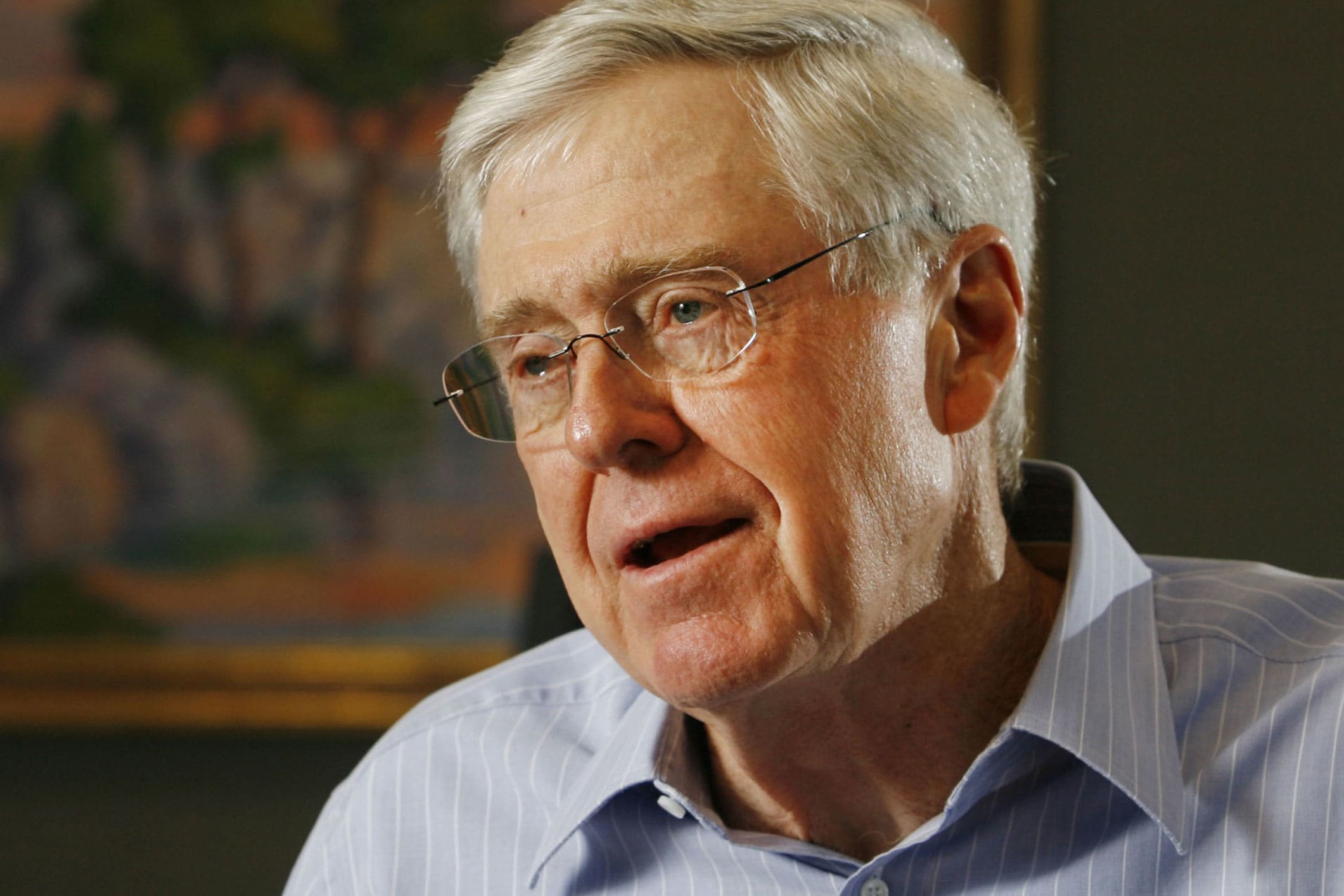
The political advocacy group backed by billionaire Charles Koch has seen key policy victories under President Donald Trump, including regulatory and tax cuts.
Yet, despite the president being at risk of losing the election to Democratic nominee Joe Biden, and potentially jeopardizing another four years of Koch-friendly policies, the network, which has often favored Republican candidates, is staying out of the presidential election.
The Washington Post reported last year that the network would not get involved with the president’s bid for reelection. The Koch stance hasn’t changed since then, even as Trump has lost his money advantage over Biden with close to a month until Election Day, according to people familiar with the matter. A Real Clear Politics average shows Biden ahead of Trump by six points.
These people declined to be named as the discussions were deemed private. The network did not support Trump during the 2016 election but was involved in the 2012 fight for the White House versus then-President Barack Obama.
The recent Koch policy victories started with with the Trump-GOP tax cut bill the president signed into law in late 2017. The organization has for years called for lower tax rates. The Koch group has also pushed for further weakening of business regulations. Trump has, at least from the Koch network’s standpoint, made headway on that front.
Then there was the First Step Act, a criminal justice reform bill publicly supported by the Koch political network. The organization has also backed all three of Trump’s nominees to the Supreme Court, including a recent campaign to support the nomination of Amy Coney Barrett. Numerous former Koch officials have worked in the Trump administration. The group also fought the implementation of Obama’s Affordable Care Act, also known as Obamacare. Trump eliminated the health-care law’s individual mandate and is challenging it in court.
But there remain stark policy differences between the Koch network and the Trump administration.
For one, the group, which favors global trade with few restrictions, has opposed the president’s use of tariffs in his trade fights with China and other countries. The Koch network has also taken issue with how the administration sought to dismantle the Deferred Action for Childhood Arrivals program for undocumented people who arrived in the United States as children.
The network, through political advocacy groups such as Americans for Prosperity, has been involved with backing candidates up and down the ballot in the 2020 election cycle, including ones at the state level and Republican senators. Another Koch-backed group, known as the Libre Initiative, has recently supported Democrats, including Rep. Henry Cuellar, D-Texas, during his successful primary earlier this year.
A representative for Americans for Prosperity did not return a request for comment.
The Koch network believes its resources will be better utilized elsewhere, people familiar with the network said. There’s also a growing belief within the network that it can’t make much of a difference in the 2020 presidential election because of so many warring factions in the larger fight for the White House.
Indeed, the nonpartisan Center for Responsive Politics shows that outside groups have spent more than $1 billion going into the final stretch of the election. Much of that total has been spent by super PACs already involved with the race for president. Data shows that super PACs either backing Biden or opposing Trump have often combined to outspend those in the president’s corner.
Another reason for the Koch network staying out of the race, according to those familiar with its decision, comes down to the differences in personality between the larger Koch-backed organization and Trump himself.
Since the 2018 congressional midterms, Koch network officials have said they are open to supporting and working with Democrats as long as they match up with the network’s priorities that often focus on limiting the influence of government. It’s part of a larger shift toward trying to show that the group wants to be a unifying force instead of focusing on partisan fights.
Trump, on the other hand, is known to publicly lambast anyone, especially Democrats, if they don’t bend to his demands or those who push back on his proposals. The repeated attacks by the president have, for many of the networks leaders, led to the decision not to directly help Trump’s bid for reelection.
“All I can tell you is that there is a clear difference in style and approach,” said a person familiar with the decision-making at the network. If the Koch group entered the presidential election, “you’re still going to forsake the ability to persuade and advocate for policy change reforms at the other levels, regardless of whether you’re going after Obama, or getting involved with Trump and his uncouth style,” this person added.
The president has previously criticized Koch and his late brother, David. Charles Koch has refrained from responding.
Some Republican donors, including those who have attended Koch network summits, told CNBC they’re convinced it simply comes down to the fact that network leaders, for the most part, aren’t fans of the president, personally.
“They just don’t like Trump,” longtime GOP donor Dan Eberhart told CNBC, when discussing why he believes the network is staying out of the race for president.
Though not a member of the network, Eberhart has been to past donor summits that have featured Charles Koch himself. “I don’t think they like him personally and they have complete disagreements on trade,” he added, while noting the two sides are in favor of many of the same policies. Eberhart gave $100,000 to the Trump Victory committee in June.
Though it failed to help elect Republican candidate Mitt Romney during the 2012 presidential election, that battle showed that the network had the resources to be a force in the arena for the White House.
Data from CRP shows that in 2012, Americans for Prosperity spent more than $30 million taking on Obama.




